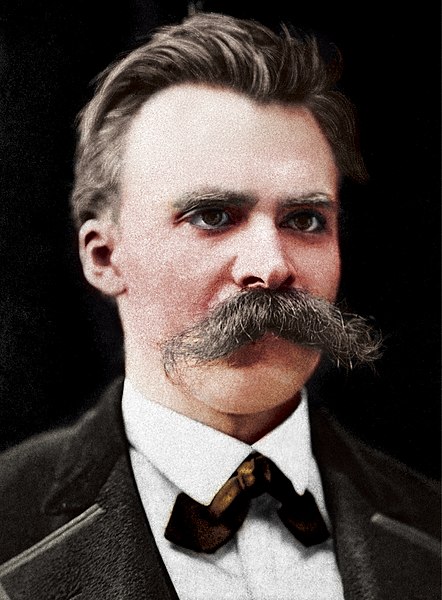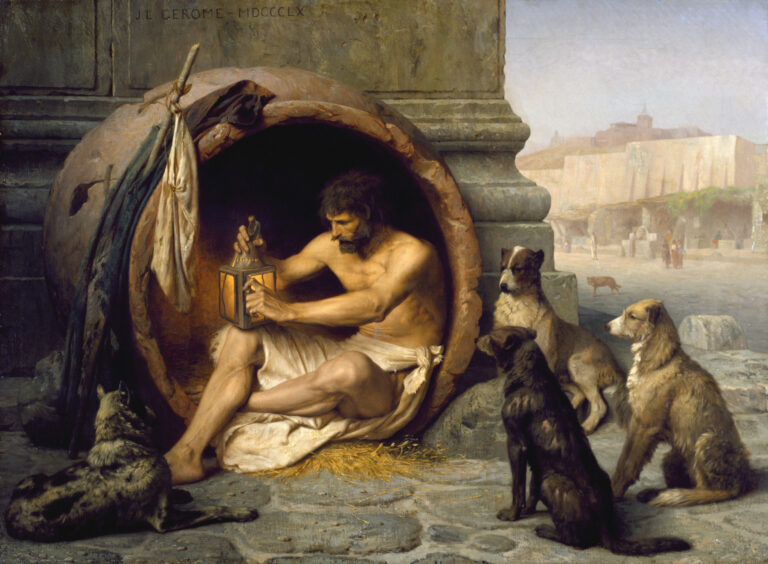
Recently I’ve been reading Nietzsche’s Twilight of the Idols, a book that was subtitled “How to Philosophize with a Hammer,” and in a nutshell, it sets out to present a scathing critique of traditional Western philosophy, morality, and culture.
In this article, aesthetics takes centre stage, and Nietzsche’s thought-provoking insights on beauty found in his aphorism ‘Beautiful and Ugly: Expeditions of an Untimely Man’ have inspired me to delve deeper into this fascinating topic.
Does objective beauty exist? Nietzsche disagrees.
‘Man believes that the world itself is filled with beauty—he forgets that it is he who has created it.’ ‘He alone has bestowed beauty upon the world— alas! Only a very human, all too human beauty…’– Nietzsche
In a nutshell, Nietzsche challenges the traditional view of beauty as an objective quality that exists independently of human perception. He argues that beauty is a product of human creation and interpretation and is not an innate quality of the world, but a dynamic and fluid concept that is constantly evolving in response to our individual and collective experiences. By challenging the notion of objective beauty, Nietzsche opens up new avenues for exploring the diverse and often conflicting ways in which we experience and understand the world around us.
Man is his own narcissist, admiring himself in the mirror believing the reflection to show objective beauty personified in anthropomorphic form. He sees what he wants to see, and he create his own standards of beauty based on subjective perceptions.
The beautiful is conditioned and here Nietzsche says: ‘There is no ‘beautiful in itself’ is not even a concept, merely a phrase’. This one brief passage, this tiny titbit of information in just one aphorism among many, is actually really profound. It speaks to me as a stern rejection of the Platonic notion of objective beauty. It’s a rejection of the transcendent, ideal realm of forms that exists independently of human experience and interpretation.
“In the beautiful, man sets himself up as the standard of perfection; in select cases he worships himself in it.”—Nietzsche
Nothing else comes to mind than the gods fashioned by the minds of humans, by creating and worshiping gods, humans are essentially creating and worshiping a standard of perfection that is based on their own subjective perceptions and values. Think about it, the gods have human like qualities but taken to their most superlative form, including beauty. In this sense, the concept of beauty can be seen as a reflection of human narcissism and the desire for self-glorification.
Does the human mind have a monopoly on the meaning of beauty or aesthetics? On earth maybe, but what about other forms of intelligent life such as extraterrestrial beings, they too might have their own unique experiences of beauty and aesthetics that differ from our own.
Beauty does not exist in isolation and is not an inherent quality of the world, but rather a subjective and human creation. In other words, humans impose their own standards of beauty onto the world around them, rather than beauty being an objective quality that exists independently of human perception.
‘Man believes that the world itself is filled with beauty—he forgets that it is he who has created it.’ ‘He alone has bestowed beauty upon the world— alas! Only a very human, all too human beauty…’—Nietzsche
We humans have a knack for labelling things as beautiful simply because they appear pleasing to our senses. We are quick to adorn the world with this title, without realizing that our perception of beauty is heavily influenced by our own subjective experiences, values, and even biology. It’s as if we have a predisposition to see the world as inherently beautiful, but fail to recognize that this perception is largely conditioned by our own human nature. Beauty, therefore, is not an objective quality of the world, but a product of our own subjective interpretations…

